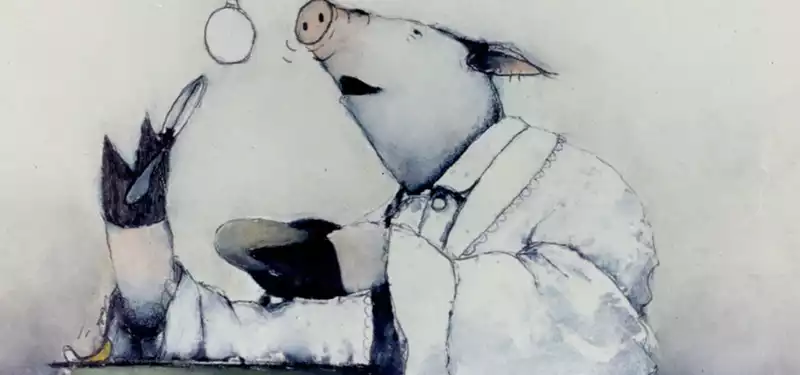Aug 26, 2020
The Animation That Changed Me Jeremy Klapan on "When The Day Breaks"
This week's guest is Jeremy Klapan. In this series, leading filmmakers discuss the animated films that have deeply influenced them. The French director made his name with acclaimed short films such as 2008's "Skizein" and transitioned to feature filmmaking with the Academy Award-nominated "I Lost My Body" (available on Netflix). He chose to work with the National Film Board of Canada on When the Day Breaks, an award-winning short film directed by Amanda Forbis and Wendy Tilby. Clapin:
I first saw "When the Day Breaks" at the Annecy Film Festival in 1999. The formal freedom of mixing traditional animation with rotoscoping, the jittery rhythm of the editing and camera movements, the sound design. I had never seen a film like this before. This film was very sensual.
I wasn't sure what this film was about, but that mattered little to me. The film spoke to me. It took me on a journey to another place that had its own rules. I felt like I was in the film and that the filmmakers trusted the intelligence and imagination of the audience. The films live right in front of us, and our viewpoints, as spectators, as human beings, are an essential element.
At the time, I was studying illustration at the Ecole Nationale Supérieure des Arts Décoratifs (ENSAD) in Paris. Graphic design, set design, printmaking, typography, and animation. I was very drawn to animation, but I was struggling to find a career path. I am not an animation craftsman and that is not how I was taught at ENSAD. What I liked was the great potential of the technique and what it offered: the ability to make films alone.
You also have to remember that the Internet was almost non-existent at the time. Outside of animation festivals, there were few ways to see independent, short animated films. When it came to animation, it was Disney, Pixar, Ghibli, and MTV. Every time I saw a short film, I was devastated. It's amazing what they can do. ...... And.
"When the Day Breaks" is from:
I recently rewatched "When the Day Breaks" and still love it. I think short films are the best format for animation. Short films are where an artist can most directly deliver his or her work to an audience. The short length of the film allows for the creation of language and conventions that would be difficult to sustain in a longer format.
I like it when a film makes the audience active and not stupid. When I watch the film, understanding it is not necessarily important to me. Strictly speaking, there is no plot. What matters to me is that I feel something. It's like when I listen to music; it's fleshly and visceral. This film makes me feel the transience of everyday life. The invisible, random connections that connect the loneliness of each of us.
Loneliness is an area I pay particular attention to. Every solitude is different, and they all offer different perspectives on life. That's what I love about it. And the setting for all of this is the city that watches over us as we go and plans our trajectory. I love the poetry of this city.
As a viewer, I like that there is space left for me in the film. This means that the director cares about me and thinks of me as an individual, not as a consumer. There is nothing more boring than a film that speaks to everyone the same way. I try to leave room for the audience to tell their own stories in my films, rather than sitting there passively.
As for rotoscoping, I spent a long time thinking about whether I should rely on this technique for the live action footage in I Lost My Body. Ultimately, I opted for rotoscope based on 3D animation. The goal was to utilize the strengths of 3D (camera, model fidelity, realism) without its weaknesses (cold, heavy realistic renderings) and the strengths of 2D animation (spontaneity, evocativeness, pictorial aspects) without its weaknesses (cost, difficulty in realistic approach).
I love "When the Night Dawns," and I don't see any drawbacks. I love accidents and flaws. It is associated with the authenticity and fragility of creation. For me, perfection in cinema is a flaw. Unfortunately, I have not had the opportunity to discuss the film with Wendy Tilby or Amanda Forbis. I don't think I even met them. I was fortunate enough to see their film Wild Life. They have a great sense of narration and comedy.
Clapin's comments were translated from the French.
.



Post your comment